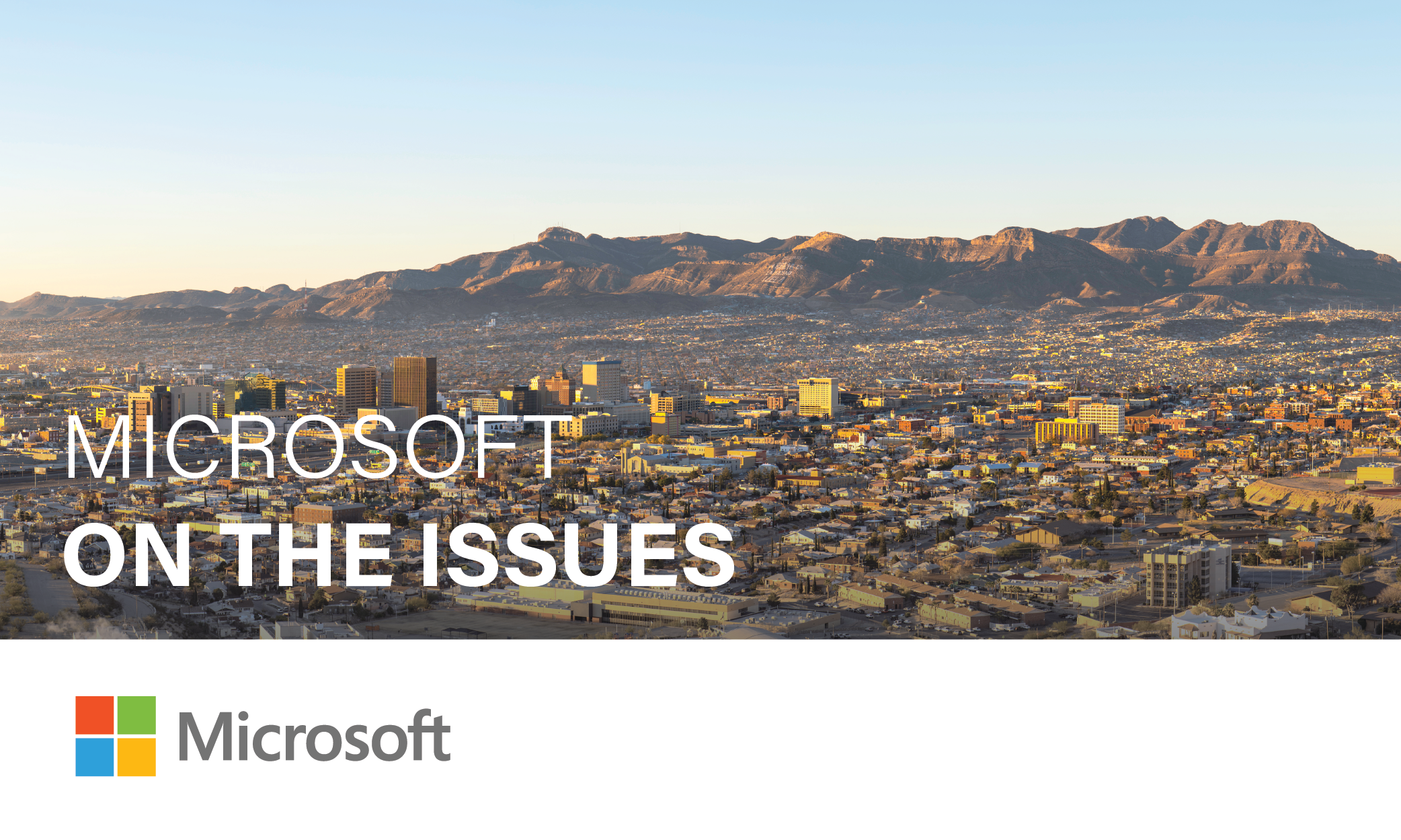Igniting Digital Transformation Throughout the El Paso-Ciudad Juárez Borderplex
Every day thousands of people legally cross back and forth between El Paso, Texas, and Ciudad Juárez, Mexico, on their way to jobs, schools, doctor's appointments, shopping centers and the homes of family and friends. This harmonious exchange has taken place for more than 400 years, uniting neighbors through shared social ties, geography, history and, most importantly, an interlinked economy.
Beyond the people and goods, El Paso and Ciudad Juárez also converge in a cross-border flow of ideas, ambition and aspirations that have shaped the region for centuries. This forward-looking spirit is what attracted Microsoft to the region in 2017, when it launched Microsoft TechSpark to create new economic opportunities and help digitally transform established industries with modern software and cloud services. It's also why Microsoft announced on Monday that it is expanding the TechSpark El Paso program to include Ciudad Juárez and making a $1.5 million investment in the binational Bridge Accelerator. Read more about the TechSpark announcement here.
